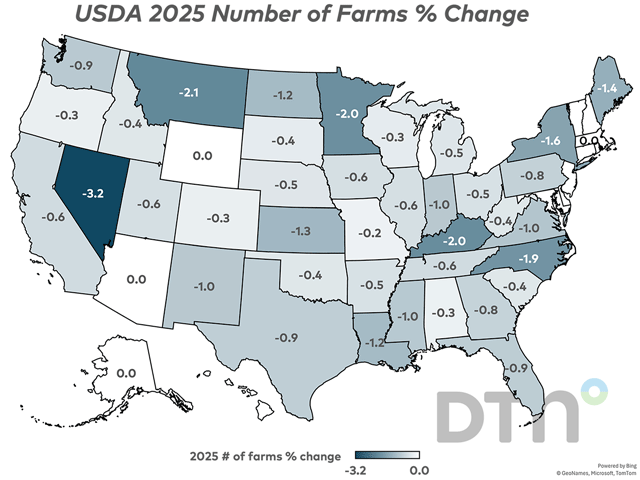Ag Policy Blog
Agencies Cite China Moves on Phase One Agreement
Well, the good news is China is making progress on the phase-one deal.
USDA and the U.S. Trade Representative's Office keep sending out updates detailing how China has advanced certain procedures and processes to boost U.S. agricultural exports to China, and what the U.S. has done to reciprocate.
A statement released Tuesday highlighted that, in the case of another break out of highly pathogenic avian influenza, as hit the U.S. in 2015, China will continue allowing imports from areas that are not affected by such an outbreak. After the 2015 outbreak, which was the worst animal disease situation in the U.S., China closed all imports of U.S. poultry and did not re-establish those imports until the beginning of this year.
China also now has provided some details on maximum residue levels for three hormones that are commonly used in beef production. China also now is allowing imports of nearly all U.S. beef products for the first time since 2003.
China buyers have gotten back into the U.S. grains market recently. USDA just last week announced that China bought 756,000 metric tons (29.8 million bushels) of corn for the 2019-20 marketing year, the largest corn sale to China since 2015. China also bought 350,000 tons (12.9 million bushels) of hard-red winter wheat.
P[L1] D[0x0] M[300x250] OOP[F] ADUNIT[] T[]
Regarding soybeans, China has bought 12 million metric tons (472 million bushels) but sales slowed in February and March as China has shifted more Brazilian beans during the South American harvest.
Pork sales have remained high with U.S. Meat Export Federation data showing sales in January alone of pork and pork variety eats were $245.4 million in value, up 361% from the same period in 2019. China has continued buying more pork because of African swine fever, which decimated the Chinese swine herd last year. USMEF posted a statement from it CEO Dan Halstrom late last week citing that USDA's Food Safety Inspection Service had updated the export library for China to reflect greater pork and beef access to China. The access is higher, but retaliatory tariffs remain in place.
"With much broader access for U.S. beef, the U.S. industry is well-positioned to expand its presence in the largest and fastest growing beef market in the world," Halstrom said. "And while unprecedented volumes of U.S. pork have been shipped to China in recent months, the U.S. pork industry has also faced significant barriers that have kept exports below their full potential. The changes announced in the Export Library will benefit pork exporters looking to expand their business in China, as well as producers and everyone in the U.S. supply chain."
As DTN's Washington Insider column noted, FSIS late last week unveiled a host of changes in the U.S. export library for meat products to China reflecting terms of the phase-one agreement.
Most of the actions detailed by FSIS involve the moves made by China to remove the age limit on beef and the setting of maximum residue limits (MRLs) on beef hormones. The guidance also reminded exporters are urged to “to work closely with their importer regarding Chinese standards of meat and poultry products intended for export to China.”
The USDA-USTR statement also cited that Chinese importers are reporting that they are receiving tariff relief in some cases when buying U.S. food and commodities.
China also has updated its list of U.S. facilities that can export distillers dried grains with solubles (DDGS). Before China had shut off access to U.S. DDGS, that had been a $1.6 billion market in 2015.
The U.S. continues with tariffs on Chinese products, but USTR did note that it has exempted items now from tariffs such as ventilators and oxygen masks. USTR also has opened a new docket for the public, businesses and government agencies to submit comments “if they believe further modifications to the 301 tariffs may be necessary. This comment process does not replace the current exclusion process and supplements that process.
Chris Clayton can be reached at Chris.Clayton@dtn.com
Follow him on Twitter @ChrisClaytonDTN
(CZ\SK)
© Copyright 2020 DTN/The Progressive Farmer. All rights reserved.




Comments
To comment, please Log In or Join our Community .